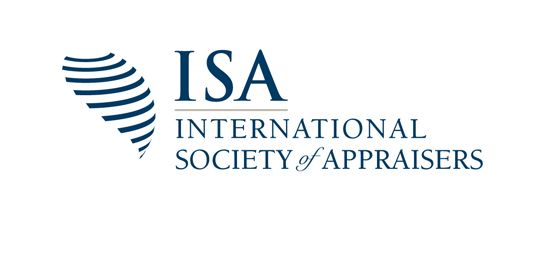This article was originally published in the August/September 1999 issue of AntiquePrime Magazine & Journal.
For What It’s Worth …
Q. Are there any standards to which appraisers can be held?
A. Appraisers, whether they appraise real estate, businesses, or personal property, are governed by the Uniform Standards of Professional Appraisal Practice (USPAP). In addition, each professional appraisal organization has its own Code of Ethics and report writing standards. I’ll focus on USPAP, since that is common to all appraisers, regardless of their affiliation with a professional appraisal organization.
 USPAP has its roots in the real estate appraisal arena. Although real estate appraisal organizations date back to the 1930s, in the 1980s several national real estate appraisal organizations joined together to form the North American Council of Appraisal Organizations (NACAO) to develop national standards and regulations. About the same time, the Savings & Loan industry came under scrutiny by the U.S. Congress for its use of faulty and/or fraudulent real estate appraisals and the resulting financial lending crisis. This led to the funding of The Appraisal Foundation (TAF) by the members of NACAO in 1987. Two years later, TAF approved and adopted USPAP. I hope you can tolerate just a little more history and a few more acronyms. In 1989 the Financial Institutions Reform, Recovery and Enforcement Act (FIRREA) was passed in the wake of the S&L crisis. Title XI of this act deals with requirements for licensing, certification, and professional conduct of real estate appraisers, and officially recognized TAF and USPAP as the standards for real estate appraisal activity.
USPAP has its roots in the real estate appraisal arena. Although real estate appraisal organizations date back to the 1930s, in the 1980s several national real estate appraisal organizations joined together to form the North American Council of Appraisal Organizations (NACAO) to develop national standards and regulations. About the same time, the Savings & Loan industry came under scrutiny by the U.S. Congress for its use of faulty and/or fraudulent real estate appraisals and the resulting financial lending crisis. This led to the funding of The Appraisal Foundation (TAF) by the members of NACAO in 1987. Two years later, TAF approved and adopted USPAP. I hope you can tolerate just a little more history and a few more acronyms. In 1989 the Financial Institutions Reform, Recovery and Enforcement Act (FIRREA) was passed in the wake of the S&L crisis. Title XI of this act deals with requirements for licensing, certification, and professional conduct of real estate appraisers, and officially recognized TAF and USPAP as the standards for real estate appraisal activity.
![]() What does this have to do with personal property appraising? Over the last decade, USPAP has been expanded to include business valuators and personal property appraisers. TAF’s Board of Trustees appoints members to two independent operating boards: the Appraiser Qualification Board (AQB) and the Appraisal Standards Board (ASB). The AQB recently adopted voluntary minimum qualification criteria for personal property appraisers. There is no regulatory compliance mandated, unlike real estate appraisers. The ASB’s primary task is the establishment, promulgation, dissemination and interpretation of USPAP, but the ASB does not enforce USPAP.
What does this have to do with personal property appraising? Over the last decade, USPAP has been expanded to include business valuators and personal property appraisers. TAF’s Board of Trustees appoints members to two independent operating boards: the Appraiser Qualification Board (AQB) and the Appraisal Standards Board (ASB). The AQB recently adopted voluntary minimum qualification criteria for personal property appraisers. There is no regulatory compliance mandated, unlike real estate appraisers. The ASB’s primary task is the establishment, promulgation, dissemination and interpretation of USPAP, but the ASB does not enforce USPAP.
So what is USPAP? It’s ten Standards Rules dealing with the process of developing and reporting an appraisal. Only two rules apply directly to personal property: Standards Rule 7, Personal Property Appraisal Development, and Standards Rule 8, Personal Property Appraisal Reporting. The remaining standards cover real property, ad valorem taxation appraisals (mass appraisals), and business appraisals. In addition to the Standards, USPAP is comprised of Comments, Statements, and Advisory Opinions. USPAP is important not only to appraisers, but to those who hire us to do appraisal and consulting work. For more information on this very important topic, visit the TAF website, www.appraisalfoundation.org.
NEXT ESTATE SALE
Get the Details on Our Next Estate Sale




